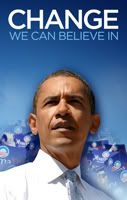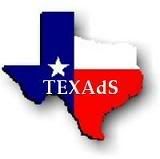Overturning a controversial standard enacted twenty years ago, the Texas State Board of Education on Thursday dealt a huge blow to creationists by striking down requirements in the science curriculum standards to teach the "strengths and weaknesses" of evolution. The board apparently was persuaded by a panel of science educators who argued that the existing standard misrepresents the debate over the mechanisms of evolution to falsely imply that scientific consensus on the theory does not exist.
The "strengths and weaknesses" argument was added to the Texas science curriculum in the eighties due to pressure from religious conservatives. Today's tie vote of 7-7 narrowly repudiates the anti-science wing of the state board, led by home-schooler and Republican ringleader David Bradley.
The Texas Freedom Network's live blog has a rundown of the day's votes. On a key amendment, the following members, all Republicans, voted in favor of teaching the "strengths and weaknesses" of evolution: Barbara Cargill, Ken Mercer, Cynthia Dunbar, Don McLeroy, Gail Lowe, Terri Leo and David Bradley.
Voting against the amendment were Mary Berlanga, Mavis Knight, Rick Agosto, and Lawrence Allen, all Democrats. In addition, Republicans Bob Craig, Pat Hardy and Geraldine Miller had the fortitude to buck the Republican leadership by also voting against the amendment. Rene Nunez (D- El Paso) was absent for the first vote but voted against a second, similar amendment introduced later in the proceedings.
Gail Lowe, representing Denton's own district 14, is quoted in the proceedings as saying, “There is no one opinion from science teachers or from science experts.” Actually, within the scientific community there is universal consensus on the validity of evolution. Read this statement from the National Academy of Sciences:
Creationism, intelligent design, and other claims of supernatural intervention in the origin of life or of species are not science because they are not testable by the methods of science [...] Documentation offered in support of these claims is typically limited to the special publications of their advocates. These publications do not offer hypotheses subject to change in light of new data, new interpretations, or demonstration of error. [...]
No body of beliefs that has its origin in doctrinal material rather than scientific observation, interpretation, and experimentation should be admissible as science in any science course [...] Science has been greatly successful at explaining natural processes, and this has led not only to increased understanding of the universe but also to major improvements in technology and public health and welfare. The growing role that science plays in modern life requires that science, and not religion, be taught in science classes.
The news was not all good. Two amendments pushed by the religious conservatives on the board managed to squeak through. One calls into question the "common descent" theory of evolution, and the second opens the door to the "young earth" fanatics by encouraging challenges to theories regarding “the structure, scale, composition, origin and history of the universe.”
The fight is not over. A second vote is scheduled for Friday, and the final vote on science standards is scheduled for March.







1 comment:
Did you know that you can create short urls with Shortest and earn $$$ for every click on your short links.
Post a Comment